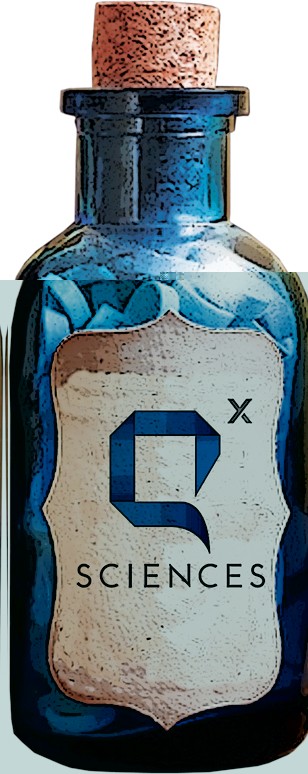Page 3 of 3

Slippery Science vs.
Pharma-economics
Marvin Ross, a Canadian health writer, was one of several voices challenging the original supplement, having joined two doctors in writing an expose e-book titled Pig Pills.
Ross says that of the 22 studies on the EMPower Plus supplement that the company advertises, none were a rigorous, randomized, controlled trial that included placebos, control groups and “blind” test participants or administrators, who are shielded from knowing whether they’re taking or giving the supplement or a placebo so as to eliminate bias and expectation from either party.
One randomized controlled test that the company doesn’t advertise was conducted by the American College of Rheumatology in New Orleans in 2002, studying the effects of the supplement on fibromyalgia.
“Their results there were negative,” Ross says, noting that it’s not a study that the supplement makers ever mention. In the fibromyalgia study, 34 participants dropped out due to gastrointestinal complaints of loose stools and diarrhea, a common side effect of the supplement.
Other studies have been hampered by significant shortcomings in their design. For example, a 2009 study polled 358 people who self-reported their response to EMPower Plus. But there was no independent information confirming whether any of the respondents had been diagnosed with a mental illness.
A 2010 research study that found a significant decrease in symptoms of bipolar disorder in 120 children and adolescents relied on a questionable practice known as “Last Observation Carried Forward.” In LOCF studies, participants are polled on their reactions to a trial, and if a participant drops out of the study, the researchers take that participant’s last observed status and carry it forward for the rest of the study. LOCF responses can be misleading; for example, if a person halfway through a trial rates his or her wellness as a 7 out of 10 but then drops out, the researcher will keep the score as 7 to the end of the trial, though others who stick through the study might drop their score considerably.
Psychiatric nurse practitioner Bailey says the tactic challenges the effectiveness of the treatment.
Only 49 percent of respondents completed the six-month 2010 study; the other half had their last observations carried forward.
“You have to say how many dropped out and why—was the multiple capsules per day just not even doable?” Bailey says.
Bailey, who has reviewed the majority of the studies on the micronutrient supplement, says that the EMPower Plus Q96 product faces an uphill battle to get true recognition of its effectiveness.
“Every study ended with, ‘We think there should be more research,’ ” Bailey says. “But there probably won’t be, because studies cost a lot of money, and where these are nutrients, drug companies can’t patent them, so there’s no money in it.”

Get a Second Opinion
Two of Bailey’s patients are currently trying the EMPower Plus Q96 supplement after she recommended a multivitamin. She says she’s also had a patient who tried it and said it was a “disaster.”
But in either case, Bailey argues, providers must recognize that nutrition, under close observation, needs to be a part of mental-health treatment. The separation of body and mind, she says, is an artificial one when it comes to medicine; the things that affect physical health, like exercise and nutrition, also help mental wellness.
Bailey says mental-health treatment is in a unique phase, where the role of nutrition is really beginning to be taken more seriously. She regularly recommends nutrients, supplements, vitamins and Omega-3 treatments in addition to conventional mental-health treatments.
Recalling a woman she treated who had obsessive-compulsive disorder, Bailey says that after recommending the traditional treatments, she recommended going on a gluten-free diet almost as an afterthought.
“She went gluten-free, and after four days she was significantly better,” Bailey says. “Which was astounding to me.”
Bailey doesn’t see EMPower Plus as false hope; if anything, she hopes that more mental-health providers will have an open mind about integrating nutritional treatments with traditional treatments. That way, patients will trust their providers to ask them about trying an alternative or complementary approach and not simply ditch their medications without talking with their providers.
“I think patients are saying, ‘I’m sick of having pills thrown at me.’ ” Bailey says. “I think patients are demanding to know, ‘What else can I do?’ and I think that’s where nutrients and other lifestyle factors come into play.”
Still, others like Ross see the EMPower Plus supplement simply as quack medicine gobbled up by the kind of anti-science people who also keep their children from being vaccinated.
“There are always people out there who are looking for a simple solution to a complex problem,” Ross says.
But regardless of the prognosis among foes, critics and even the Q Sciences corporation, one opinion is universal—the product is not meant to replace a person’s prescribed medications. And for doctors like Bailey and for Q Sciences’ official company policy, talking with doctors before taking the supplements is vital.
Of course, when you have a company built essentially by independent business owners, opinions may differ when it comes down to the distributor trying to move his or her product.
When the bubbly woman hawking EMPower Plus at the NAMI Walks event was asked what doctors would think of patients wanting to try the product, she rolled her eyes.
“Well, obviously the doctors don’t like it,” she said with a chuckle. “Because it’s going to put them out of business.”
Nicholas Suede Peterson contributed to this report.